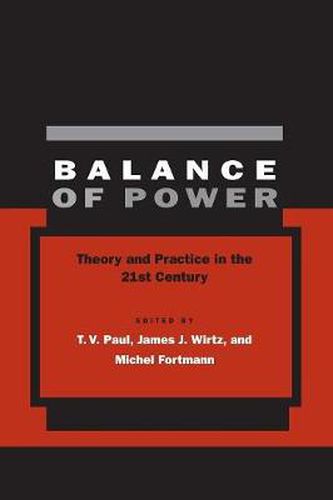Readings Newsletter
Become a Readings Member to make your shopping experience even easier.
Sign in or sign up for free!
You’re not far away from qualifying for FREE standard shipping within Australia
You’ve qualified for FREE standard shipping within Australia
The cart is loading…






Since the 16th century, balance of power politics have profoundly influenced international relations. But in recent years - with the sudden disappearance of the Soviet Union, growing power of the United States, and increasing prominence of international institutions - many scholars have argued that balance of power theory is losing its relevance. This volume examines the current position and future of balance of power dynamics in international politics. In this book, prominent scholars pay special attention to the theoretical and historical criticisms of balance of power theory while empirically assessing its validity at both global and regional levels. The volume also looks at systemic factors favoring or hindering a return to balance of power politics. It evaluates the challenges posed by subnational actors, such as terrorist groups, and weapons of mass destruction to international order. Further, it examines the relevance of balance of power axioms in selected regions: Western Europe, Eastern Europe, East Asia, South Asia, and Latin America.
$9.00 standard shipping within Australia
FREE standard shipping within Australia for orders over $100.00
Express & International shipping calculated at checkout
Since the 16th century, balance of power politics have profoundly influenced international relations. But in recent years - with the sudden disappearance of the Soviet Union, growing power of the United States, and increasing prominence of international institutions - many scholars have argued that balance of power theory is losing its relevance. This volume examines the current position and future of balance of power dynamics in international politics. In this book, prominent scholars pay special attention to the theoretical and historical criticisms of balance of power theory while empirically assessing its validity at both global and regional levels. The volume also looks at systemic factors favoring or hindering a return to balance of power politics. It evaluates the challenges posed by subnational actors, such as terrorist groups, and weapons of mass destruction to international order. Further, it examines the relevance of balance of power axioms in selected regions: Western Europe, Eastern Europe, East Asia, South Asia, and Latin America.